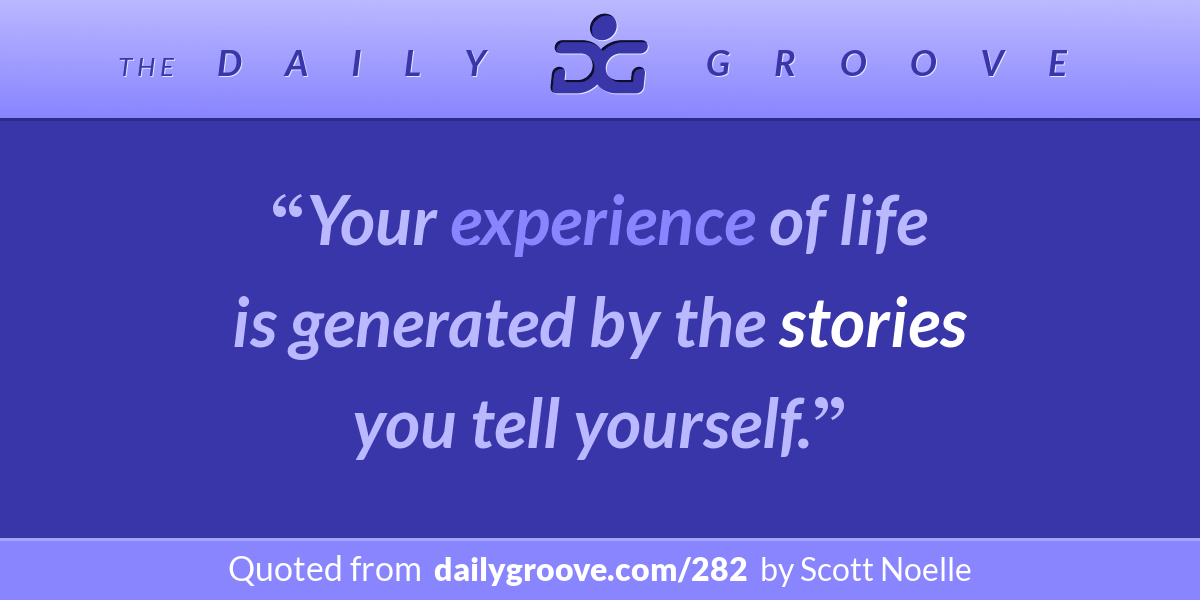“Once Upon A Time” (Part 2)
Whenever you talk (or think) about the past, you are telling a story. After all, “the past is history,” which is “his-story” (or “her-story”) about the past.
Unintentional storytelling is no less powerful than deliberately conjuring stories (see Part 1), and you can harness its power by mindfully crafting your thoughts and words to tell stories that feel empowering.
Consider this simple statement: “My son was a total brat at the park.” It’s a mini story, and the child is the villain!
Improve Your Groove
Today, observe your thoughts and statements, and whenever it’s about something in the past, expose it as a story by adding the phrase “once upon a time.” For example, “My son was a total brat at the park... once up a time.”
Playing this thought game will reveal how your experience of life is largely generated by the stories you tell yourself and others. More important, when you don’t like how it feels, you can change the story:
“Once upon a time, my son got so overstimulated at the park that he lost his temper and yelled at me, and I realized he needs help staying centered, so he can play... happily ever after.”




